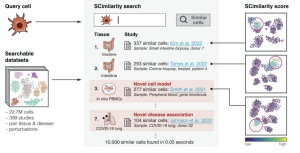Improving Miscarriage Care in Canada: Expert Recommendations

Miscarriage, or early pregnancy loss, can have devastating emotional effects, but it is poorly managed in Canada. A review published in CMAJ (Canadian Medical Association Journal) provides guidance to physicians on how to diagnose and manage this condition and calls for referral to outpatient early pregnancy assessment clinics (EPACs) as well as a compassionate approach.
Data suggest that 15–20 per cent of all confirmed pregnancies result in miscarriage, with about half caused by chromosomal abnormalities, a risk that increases with age. These early losses, while common, can be devastating.
“[Providers] must bear in mind the considerable psychological effects of early pregnancy loss and not underestimate compassion as a cornerstone of assessment, management, and follow-up,” writes Dr. Modupe Tunde-Byass, an obstetrician/gynecologist at North York General Hospital and associate professor at the University of Toronto, Toronto, Ontario, with coauthors.
Many pregnant people with bleeding and cramping seek care from the emergency department. However, for those without symptoms of a ruptured ectopic pregnancy or major uterine hemorrhage, seeking care in an overcrowded emergency department often means long delays, sitting in a waiting room chair, to see a health care provider.
“Although the emergency department is the safest and most expeditious place for a pregnant person to be treated for massive uterine hemorrhage or a suspected ruptured ectopic pregnancy, pregnant patients who are not critically ill often receive suboptimal care in emergency settings,” writes Dr. Catherine Varner, an emergency physician and deputy editor, CMAJ in an editorial.
The authors of both articles recommend referral, where available, to an outpatient EPAC staffed by health care professionals skilled in delivering comprehensive, compassionate care for this specific patient cohort.
“Research from Ontario and British Columbia has shown that EPACs can ameliorate patient experience and have been shown to improve clinical outcomes, reduce repeat assessments in the emergency department, and lead to improved patient satisfaction,” writes Dr. Tunde-Byass.
However, these services are lagging.
“Given health systems’ current focus on health care innovations that seek to provide the right care, at the right time, by the right provider, in the right location, prioritization of patients experiencing early pregnancy loss would seem deserving of attention, given their risk for enduring physical and psychological effects related to existing models of care. It is time to invest in early pregnancy assessment clinics that are better equipped to provide a more tailored, patient-centred experience and greater understanding of early pregnancy complications and loss than can be found in an overcrowded emergency department,” concludes Dr. Varner.
“Diagnosis and management of early pregnancy loss” and “Investing in streamlined care for patients experiencing early pregnancy loss in Canada would reduce substantial suffering” were published October 15, 2024.







